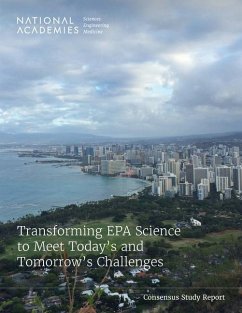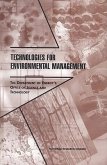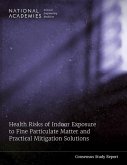Since its establishment in 1970, the mission of the Environmental Protection Agency is to protect human health and the environment. EPA develops regulations, ensures compliance, and issues policies, in coordination with state, tribal, and local governments. To accomplish its mission, EPA should be equipped to produce and access the highest quality and most advanced science. The Office of Research and Development (ORD) provides the scientific bases for regulatory and public health policies that have broad impacts on the nation's natural resources and quality of human life, and that yield economic benefits and incur compliance costs for the regulated community. In addition, ORD develops the agency core research capabilities, providing tools and methods for meeting current and anticipating future environmental challenges, such as the risks to health and the environment posed by climate change. Because challenges associated with environmental protection today are complex and affected by many interacting factors, the report points to the need for a substantially broader and better integrated approach to environmental protection. This report calls for EPA ORD to pursue all of its scientific aims in a new framework--to apply systems thinking to a One Environment ? One Health approach in all aspects of ORD work. To accomplish this, the report provides actionable recommendations on how ORD might consider incorporating emerging science and systems thinking into the agency research planning, so that ORD can become an increasingly impactful organization. The report identifies a number of high-priority recommendations for ORD to pursue in taking advantage of a broad range of advanced tools, in concert with collaborators in other federal agencies and the broader scientific community. Given the resource constraints, the report recognizes that ORD will have to make decisions about priorities for implementing its recommendations, and that ORD leadership is in the best position to set those priorities as implementation begins. The report concluded by stating that shifting to a systems-thinking approach will require renewed support from science leadership, enhanced strategic planning, investment in new and broader expertise and tools, and a reimagined and inclusive commitment to communication and collaboration.
Hinweis: Dieser Artikel kann nur an eine deutsche Lieferadresse ausgeliefert werden.
Hinweis: Dieser Artikel kann nur an eine deutsche Lieferadresse ausgeliefert werden.








